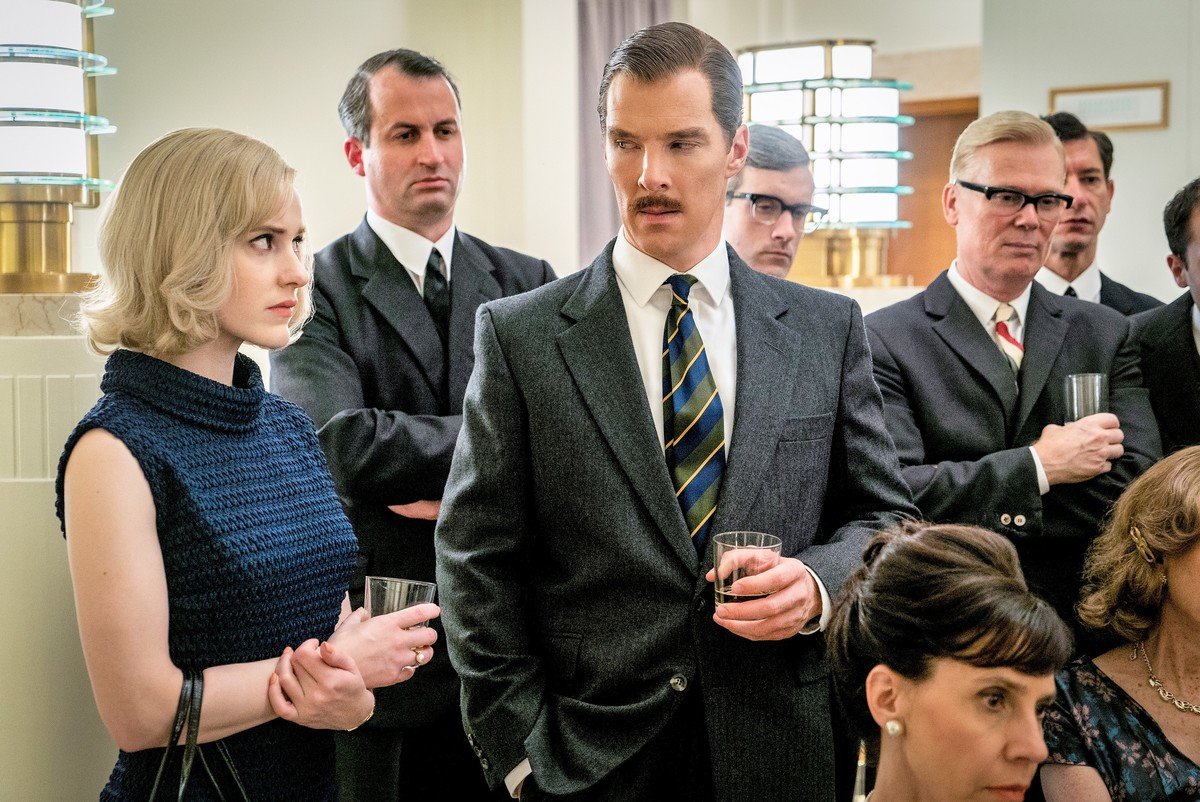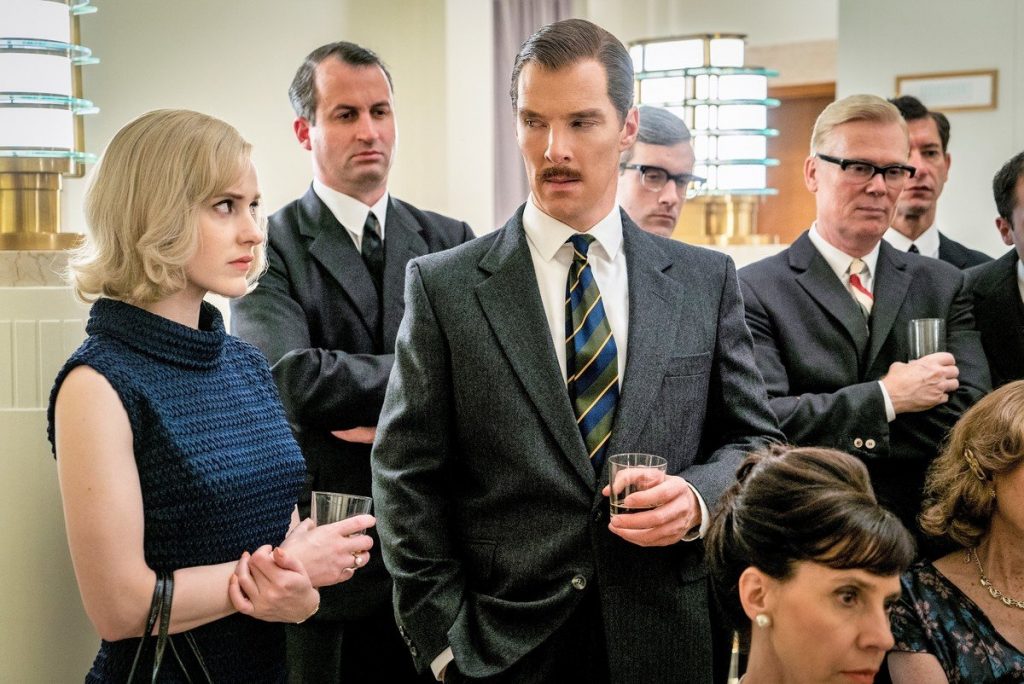

One of those movies where you can glean pretty much everything you need to know from the trailer, The Courier offers a serviceable if rather underpowered espionage drama whose main attraction is the reliable, variation-on-a-theme performance of its headlining star.
Benedict Cumberbach plays real life historical figure Greville Wynne, a successful if otherwise unremarkable salesman who gets recruited by British and American intelligence agencies to make contact with a defecting Russian high-ranking official in the lead up to the Cuban missile crisis.
Wynne is completely inexperienced at spycraft and that’s the point: he is selected specifically because of the inconspicuous way he might infiltrate the Soviet regime under cover of advancing his own Western capitalistic interests.
Wynne makes contact with his Russian contact, Oleg Penkovsky. The pair attend meetings, share meals, and go to the ballet. Every once in a while, when the coast is clear, they whisper conspiratorially and exchange clandestine documents.
That’s pretty much it.
There is a little bit of secondary drama around the secrets Wynne feels compelled to keep from his wife Sheila, played with minimalistic, potent panache by Jessie Buckley.
There is also a sequence at the end (spoiler alert) when both Wynne and Penkovsky get caught, tortured, and interrogated in prison. This conclusion — like the film as a whole — may have a rather peremptory feel, like “of course this is happening,” but at the same time there are a few interesting moments.
One is some superfluous nudity from a Cumberbach who has obviously lost a lot of weight for those final scenes.
Another is the still incarcerated Wynne’s interactions with Sheila, their marriage teetering just back from the brink of irrecoverable estrangement.
A third moment of interest (spoiler) involves Wynne’s discovery that his work has, indeed, possibly helped prevent a Cold War nuclear apocalypse, as well as the fleeting interaction in which he is able to communicate this to Penkovsky. Penkovsky, we learn, went on to be executed as a traitor, and in their brief conversation we get the satisfaction of seeing Penkovsky realize his sacrifice was not in vain.
The best part about this all, probably, is its basis in real events. If it weren’t actual history, it would all be pretty boilerplate and honestly kind of boring.
And it almost is in any case.
Among the worst reasons to relate something in a story, as it has been said (in a rather Oscar Wildean manner), is that it really happened.
The point of this adage, I take it, is that lots of things really happen and it is really only the best, most supremely interesting of things that merit the time and attention we bestow in our ritual storytelling.
Does the historical saga behind The Courier amount to one of these “most interesting” things?
In my view, probably not. Any story that can be crystalized in a two minute trailer probably deserves, all things being equal, to stay one.
But you might disagree, especially if you’ve got an extra one hundred and fifteen minutes, not much else to do, and an insatiable appetite for anything spies, nineteen sixties, or Benedict Cumberbach.
There won’t be much you haven’t seen before in this somewhat cookie cutter Cold War picture, but then again when you’re hungry almost any cookie tastes good.
